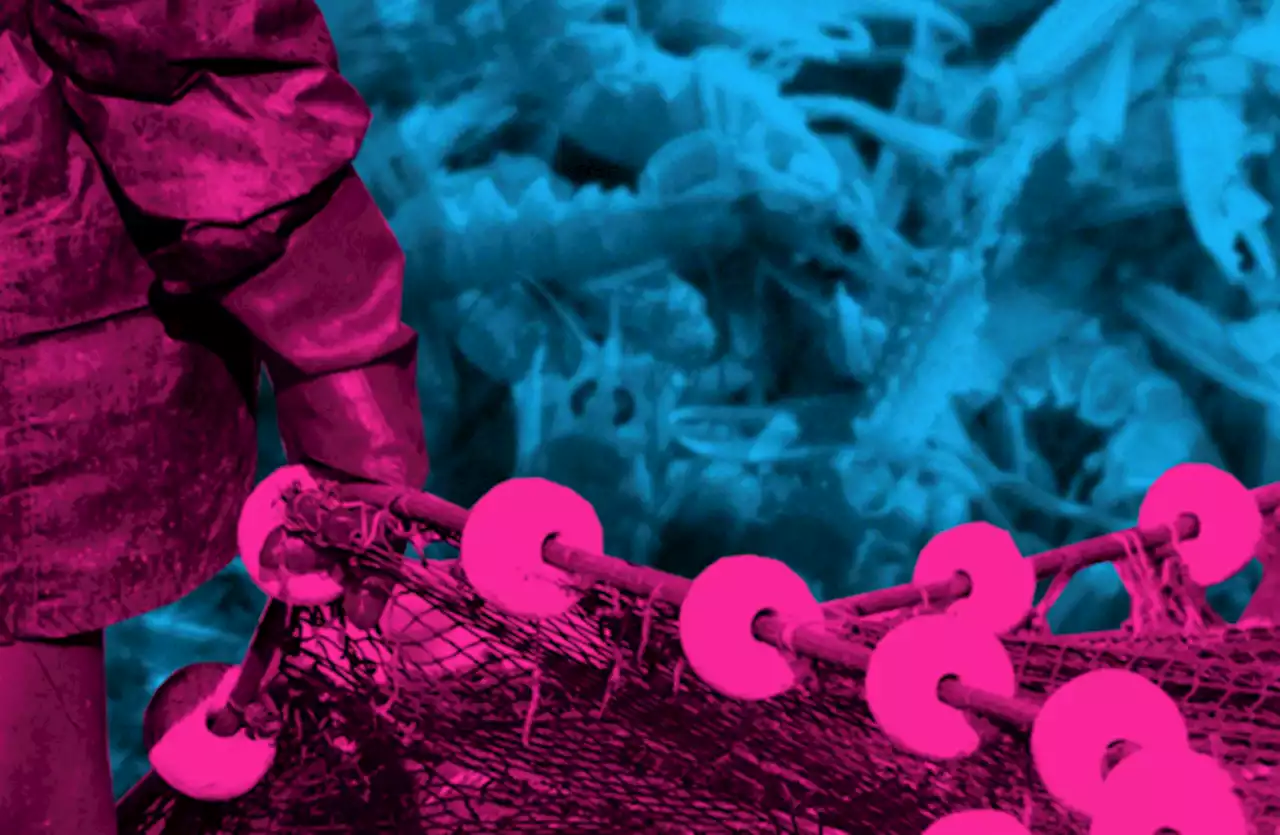Over the past 6 months, noteworthy_ie teamed up with journalists in the Philippines to investigate exploitation in the Irish fishing industry. Here is what they found:
“AFTER SEVERAL YEARS working back and forth as a seaman, it’s the first time that I experienced an employer that abused me. They mistreated us.”
He came from a family familiar with seafaring and after his brother worked on boats in Europe, Lloyd followed in his footsteps. Paid just Php 380 per day at home, like many other migrant workers from the archipelago, he left the country to seek better-paying jobs abroad. Over the past six months, as part of our HANDS ON DECK cross-border investigation, Noteworthy teamed up with journalists in both the Philippines and Ireland to investigate exploitation in the Irish fishing industry. We can now reveal:
Lloyd said that he experienced racism on the ship, with around €1,200 being lodged into his bank account per month which, depending on the catch, was significantly less than crew members from the EU. He also said he was physically abused by a skipper, being punched “randomly in the stomach”.Human trafficking for labour exploitation can involve a number of dimensions which can be assessed using a set of methodologies.
Between 2016 and 2020, just one person was not admitted to the NRM, out of 25 allegations relating to the fishing industry. Because of this, it has “become ever more difficult” for the ITF to get fishers admitted to the National Referral Mechanism, he said. In relation to the PSNI, Chief Inspector Julie Mullan said that they “have a dedicated Modern Slavery and Human Trafficking team that investigate all allegations” in Northern Ireland. She continued:
A Department of Justice spokesperson told the investigative team that once this Bill is enacted, the revised National Referral Mechanism “should make it easier for victims to come forward to seek protection and to access all of the support and resources that are available to them”. An expert who has represented fishers in court cases told the investigative team that this work permission made it “legal to exploit” migrant fishers, with few “real consequences”.
Due to a lack of trafficking convictions as well as “chronic deficiencies in victim identification and referral”, Ireland no longer meets the US law’s minimum standards for the elimination of trafficking. This resulted in Ireland being downgraded from a ‘Tier 1’ country to ‘Tier 2’ in 2018. Both Ireland and Romania were removed from the ‘Tier 2 Watch List’ in July 2022 and are currently at ‘Tier 2’. For Ireland, the latest TIPs report stated that this was due to “increasing efforts”. However, it added that “systemic deficiencies in victim identification, referral and assistance persisted” – one of “several key areas” where “the government did not meet the minimum standards”.
Though trafficking was not the focus of the report, it highlighted a number of important trafficking-related issues including “severe violations such as withholding of wages, being forced to perform additional unpaid work-related tasks” as well as “the use of deception and coercion as a means of control”.
“In Ireland, we don’t have… what they have in the UK – the idea of modern slavery,” Murphy explained. This “can include forced labour separate to trafficking”. He challenged whether all the fishers admitted to the National Referral Mechanism were victims of trafficking citing the lack of subsequent prosecutions in relation to the fishing industry.
The ITF’s O’Brien told the investigation team that “fundamentally vessel owners, as employers, have to be responsible”, adding that “patchy enforcement on the part of various authorities” needed to be addressed. Though there were civil and criminal cases taken in relation to the four Ghanaians, two of these cases failed due to the WRC’s “shambolic conduct”, according to the ITF.
“Generally, the WRC does not require as witnesses any non-EEA nationals who worked without permission. However, each case is treated on its merits. Though the four were admitted into the National Referral Mechanism as suspected victims of human trafficking in 2018, according to O’Brien, the DPP told the fishers in recent weeks that they are not going to prosecute the vessel owner.
For Daniel, the entire experience had a huge impact on both him and his extended family. “It wasn’t easy. You just came to make a living but then there is a whole story, you are trafficked… there is a lot of stigma that you have to deal with.” “Fishing has been in this country for years so [people] should appreciate the work of the fishermen. When you meet Irish people, they tell you ‘I’m not going to do fishing’. So if somebody from somewhere is coming, [authorities] need to give the necessary support to that person because he’s doing it for the country.”
Lloyd was one such fisher. Despite exhausting working hours, he was not able to send a single cent home for his children’s education during the first three months of his time in Ireland because his salary had to pay his agency’s placement fee. This is not a new issue, being reported by media outlets in relation to trafficking cases over the past number of years. Yet it continues to persist, with experts concerned that it puts migrant fishers in Ireland at risk of debt bondage – where victims are tricked into working for little or no money to repay a debt.
We also asked the DOJ if there were any plans to regulate agencies such as this more strictly. A spokesperson said that “the regulation of employment and recruitment agencies operating outside of this state is a matter for the relevant State’s own authorities”. When told that a recruitment agency in the Philippines was charging both fishers and vessel owners, the DETE spokesperson said that “the Department of Justice is not aware of specific cases of recruitment agency charges in the country referred to” and added that “if such information came to light, the Department of Justice might take that into account when considering visa applications”.
Lloyd’s mother worries about the cost of sending her grandkids to school Source: Geela Garcia in the Philippines Lloyd currently works on a farm in Ireland. His 69-year-old mother told the investigative team that she felt he was abandoned, “going [from] place to place to find someone who’ll give him food”.
Italia Ultime Notizie, Italia Notizie
Similar News:Puoi anche leggere notizie simili a questa che abbiamo raccolto da altre fonti di notizie.
 Young Irish woman becomes guardian of sisters after mother's tragic death'Here I was trying to be a stand-in mam, I knew I could never take her place and I missed her just as much.'
Young Irish woman becomes guardian of sisters after mother's tragic death'Here I was trying to be a stand-in mam, I knew I could never take her place and I missed her just as much.'
Leggi di più »
 YouTuber interviews inmate in Irish prison before officers storm cellHe spoke openly about life behind bars in Ireland 'Conditions for us are fairly good – I can’t complain. I’m sure there are hotels out there that are worse.”
YouTuber interviews inmate in Irish prison before officers storm cellHe spoke openly about life behind bars in Ireland 'Conditions for us are fairly good – I can’t complain. I’m sure there are hotels out there that are worse.”
Leggi di più »
 Irish rail to get 90 new battery electric carriages in public transport boostIt has been hailed as a major boost for public transport enabling further expansion of the DART and wider rail services while decarbonising the existing diesel fleet.
Irish rail to get 90 new battery electric carriages in public transport boostIt has been hailed as a major boost for public transport enabling further expansion of the DART and wider rail services while decarbonising the existing diesel fleet.
Leggi di più »
 Profits jump at Johnson & Johnson’s Irish unitMost of firm's revenue came from outside Ireland
Profits jump at Johnson & Johnson’s Irish unitMost of firm's revenue came from outside Ireland
Leggi di più »
 Pretax profits at Irish branch of agency representing Ronaldo dip slightlyCompany pays dividend of €20m via IrishTimesBiz
Pretax profits at Irish branch of agency representing Ronaldo dip slightlyCompany pays dividend of €20m via IrishTimesBiz
Leggi di più »
